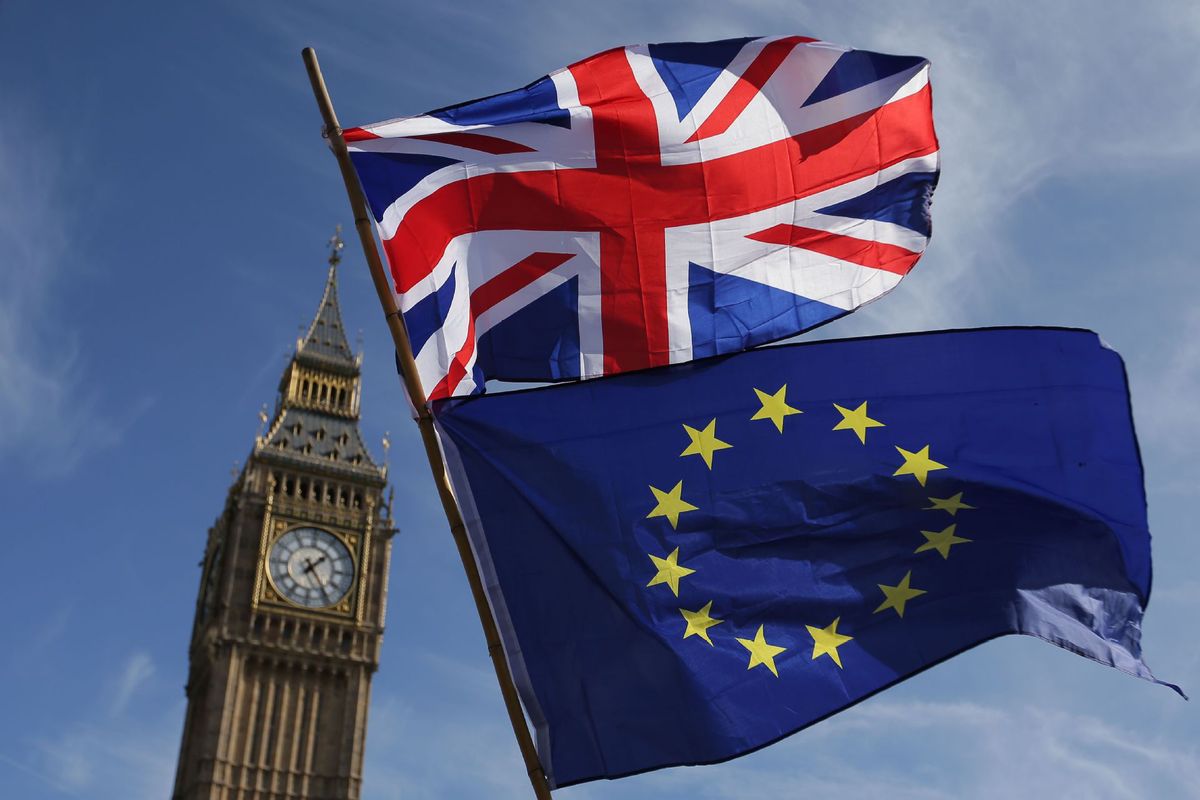Brexit behavior has 'put UK credibility in doubt'


Ireland's European Union Commissioner says the British government's behavior in trying to unpick the deal it negotiated for Northern Ireland in the Brexit agreement raises questions about its reliability as an international partner.
Speaking to the Irish Independent newspaper, Mairead McGuinness said Britain's chief Brexit negotiator David Frost was trying to "wash his hands of" a deal he helped to shape, and which he hailed at the time as an "excellent deal with the EU", the result of "tireless work day after day in challenging conditions". Less than six months later, however, he called the Northern Ireland arrangements "dead in the water".
"You can't wash your hands of an agreement that you shaped and made and signed," said McGuinness. "It just isn't credible to do that. And I'm sure there are other countries, including the (United States), that are looking at what the UK is doing and maybe asking questions about the credibility of doing any deals with the United Kingdom."
Mention of the US is significant because of the upcoming G7 summit taking place in England, which President Joe Biden, whose administration supports the EU over the issue of Northern Ireland, will attend.
The deal Frost agreed left Northern Ireland within the EU's single market for goods, meaning that although it remains politically part of the UK, goods crossing the Irish Sea must pass through an invisible border, and will be subject to customs checks.
In 2019, weeks before the general election, British Prime Minister Boris Johnson told a group of business leaders in Northern Ireland there would be no need to go through any customs formalities as a result of the deal to leave the EU.
"If somebody asks you to do that, tell them to ring up the Prime Minister and I will direct them to throw that form in the bin," he said. "You'll be alright … there will be no forms, no checks, no barriers of any kind. You will have unfettered access."
The reality, however, is very different, provoking outrage in Northern Ireland's Unionist community, whose political allegiance is to the UK, and who resent being made to feel peripheral in any way.
Brexit tensions led to several nights of rioting in Northern Ireland in April, and the Daily Telegraph reports that EU officials are tired of dealing with Frost, whom they have accused of harming relations and stoking resentment in Northern Ireland.
"Frost wants to ensure that EU-UK relations remain sub-zero to avoid any useful rapprochement in the foreseeable future," the Telegraph quoted a diplomatic source as saying.
The summer is always a volatile time in Northern Ireland anyway, because of the marching season. This is a series of marches by Unionist organizations commemorating the victory of the Protestant William, Prince of Orange, over the Catholic King James at the Battle of the Boyne on July 12, 1690, the event that has underpinned generations of social division and segregation across Northern Ireland ever since.
Unionists regard the marches as a celebration of their culture and history, but to many Republicans they are deeply provocative, and often lead to angry confrontations.
































